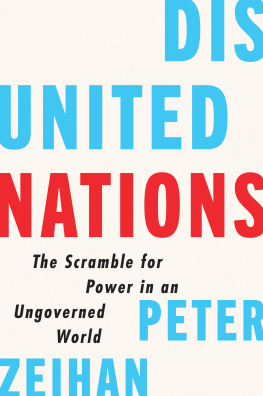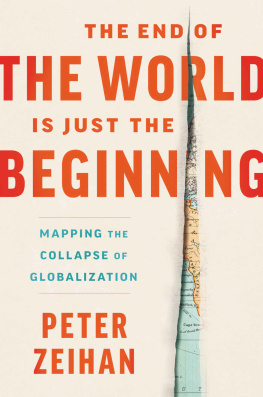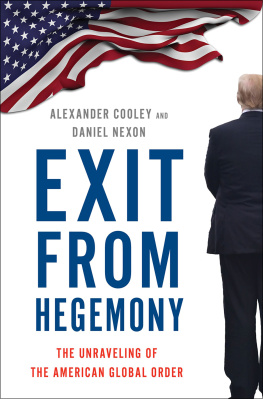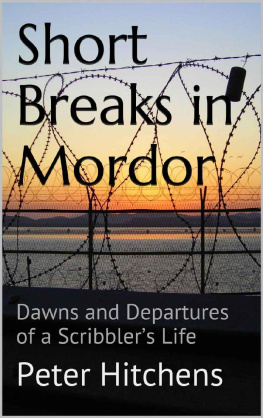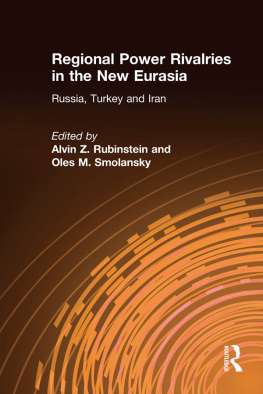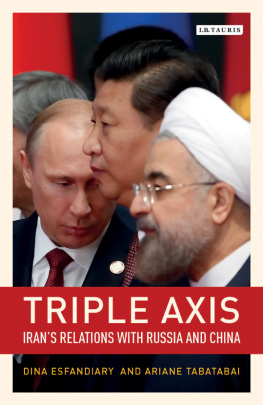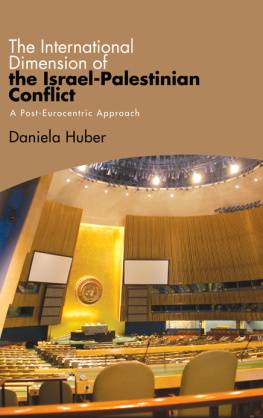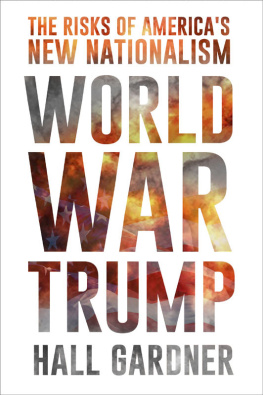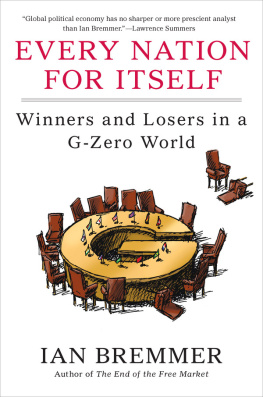Contents
Guide
To the mentors who advised me that while
it is important to be bold and brash,
the smartest thing I could ever do is
find the smartest person in the room and just...
listen.
Candice Young
Robert Pringle
Susan Eisenhower
Matthew Baker
Contents
At the end of the last millennium I found myself in a moment of transition.
Just after Christmas 1999, I drop-kicked my relationship, my job, and my life in the nations capital, loaded up everything I owned into a rickety SUV, and took off for a fresh start in Austin, Texas. On January 10, 2000, I was a shiny new staffer at a place called Stratfor.com, at the time a media- and geopolitics-analysis house. My new boss was... a piece of work. Matt Baker was a wiry ball of over-caffeinated angst and passion, stuffed into a sharp-edged personality that oozed detailed knowledges (not opinions, knowledges) as regards Europe and Russia and China and Turkey and so on.
As my recent work in DC had involved quite a bit of Europe and Russia and China and Turkey, clearly I had things to contribute. Matt and I clashed openly, vitriolically, and often. In doing so we developed a deep mutual respect and became good friends.
One night over too many adult beverages we discussed moments of transition of the less personal, and more global, type.
Matts core thesis was that the entire fabric of the international system was based on the American alliance network, which in turn depended upon a nearly feudal mix of American security commitments and deference to American desires. We back you up in your backyard where it matters to you, and in exchange, you back us up where it matters to us. Challenges from the allies had started to pop up after the Berlin Wall fell, triply so as many of the allies sensed the end of history with the 1990s Russian collapse, and disdained the screwiness of American foreign policy in places like Kosovo and Iraq. Matts contention was that as the fear of nuclear Armageddon faded from memory into history, the Americans would have a harder time holding the allies together. In his mind 2020 would look a lot like 2003 with countries resisting American power, but the Americans would continue to muster suitable motivation to (successfully) pressure everyone into maintaining some version of the status quo.
In other words, everyone would keep working with America, because the most powerful country in history would want to keep it that way. It wasnt going to be quite as chaotic as herding cats, but it would be close.
In contrast, I felt that the alliance network, bereft of the security demands of the Cold War, had slid into a new role. Instead of defending the allies on the plains of Northern Europe or in the seas of East Asia, it instead was spreading security to the global commons. This was becoming an end unto itself that was superseding the old logic of alliance. The root of economic growth is physical security, and if the Cold War ended and the alliance could hold, the nearly automatic result would be a transformational boom global in scope that was both economic and technological. In my mind, 2020 would look a lot like 1950, albeit without the whole fear-of-nuclear-war thing. The spreading wealth, by force of information and capital flow, would grind down what less modern, less democratic pockets of resistance remained.
In other words, the world order would keep going, because unraveling it could mean unwinding decades of economic penetration and deny billions access to hamburgers and cell phones. Who would want that? It wasnt quite going to be Star Trek, but it would be close.
I was Stratfors unofficial economist. Matt was the gun guy. Most of our friction came from arguing over the power of the checkbook versus the power of Smith & Wesson. Yet so did our greatest collaborations.
After a bunch of backing and forthing and what-ifing and puzzling over oddly colored mixers, Matt asked point-blank, So what happens to my suitable motivation and your transformational boom when the Americans change their minds about their alliance? No alliance system can last without a common threat. As the nights seventh drink soaked in, we both hmmmed as we contemplated the dark, horrifying possibility that we might both be wrong. Im pretty sure we cracked the code a few minutes later, but our mutual blackouts robbed us of the pertinent knowledge. Instead, as often was the case with Matt, I was left with more questions than answers.
Ever since, both at Stratfor and beyond, my professional life has been about building up enough understandings to close out that long-ago conversation. Disunited Nations, nearly twenty years in the making, is my best shot.
Disunited Nations is about what happens when major powers decide they are better off competing instead of cooperating. It is a book about what happens when the global Order isnt just falling apart but when many leaders feel their country will be better off tearing it down. Were going to look at the rise of Trump and leaders like him. Were going to think through Saudi Arabia and Irans competition to rule (or misrule) the Middle East. Were going to look at how we match farmers to hungry mouths, minerals to manufacturing, oil to gas tanks.
Through these stories, were going to keep two big ideas in mind.
The first is that geography might not be destiny, but it is damn close. It is the biggest factor in determining how we act and how we live and fundamentally who we are. Live in a desert and bam! youre going to fight to protect what little you have. Live on a coast and bam! youre going to eat a lot of foreign food. Live in a dense urban area and bam! youre probably not going to have an issue with Tongans, Thais, Tunisians, or transvestites. Live in the mountains and bam! youre going to be a bit... persnickety when folks from other regions roll through. As we were geographers at heart, in this Matt and I were in complete agreement.
Most of us consistently misread economies and conflicts because we dont take geography into account. Its so clear that we are not like the next town over, and city folk are not like country folk, but when we start trying to explain the world, geography often slips our mind. We misinterpret whats happening in the news, and think China is holding on to Hong Kong out of stubbornness or the fights about the American-Mexican border are only about race. Geography shapes everything. Including us. Whats been different in recent decades is that geography has been suspended somewhat, enabling deep global economic interconnections. Weve come to see those connections as a great strength; they are turning into weakness before our very eyes.
The second big idea is that Disunited Nations is being published now in 2020, not a few years from now, because the world has run out of time. That moment of transition when the Order will come crashing down is almost upon us.
It may not seem this way to Americans who have been engaged in some degree of warfare continuously since 1999 and had decades of duck-and-cover drills before that, but the world since 1946 is as calm as the world has ever been. In creating their anti-Soviet Cold War alliance, the Americans by hook, crook, carrot, and stick brought every significant power of the past five centuries together under a single banner: Norway, Sweden, Spain, Portugal, France, Germany, the Netherlands, Italy, Greece, Turkey, Iran, Japan, Chinaall of them and more allied in various degrees of formality against the Soviet Union. If they were to be fighting the Soviets, it wouldnt be particularly productive if they were also fighting one another. The American alliance didnt so much end history as freeze it in place.
Most Americans are broadly familiar with the European side of the equationafter centuries of conflict within the Continent the guns fell nearly silent, courtesy of the American security systembut the impact on Asia was even bigger. China and India did not have a
Next page
